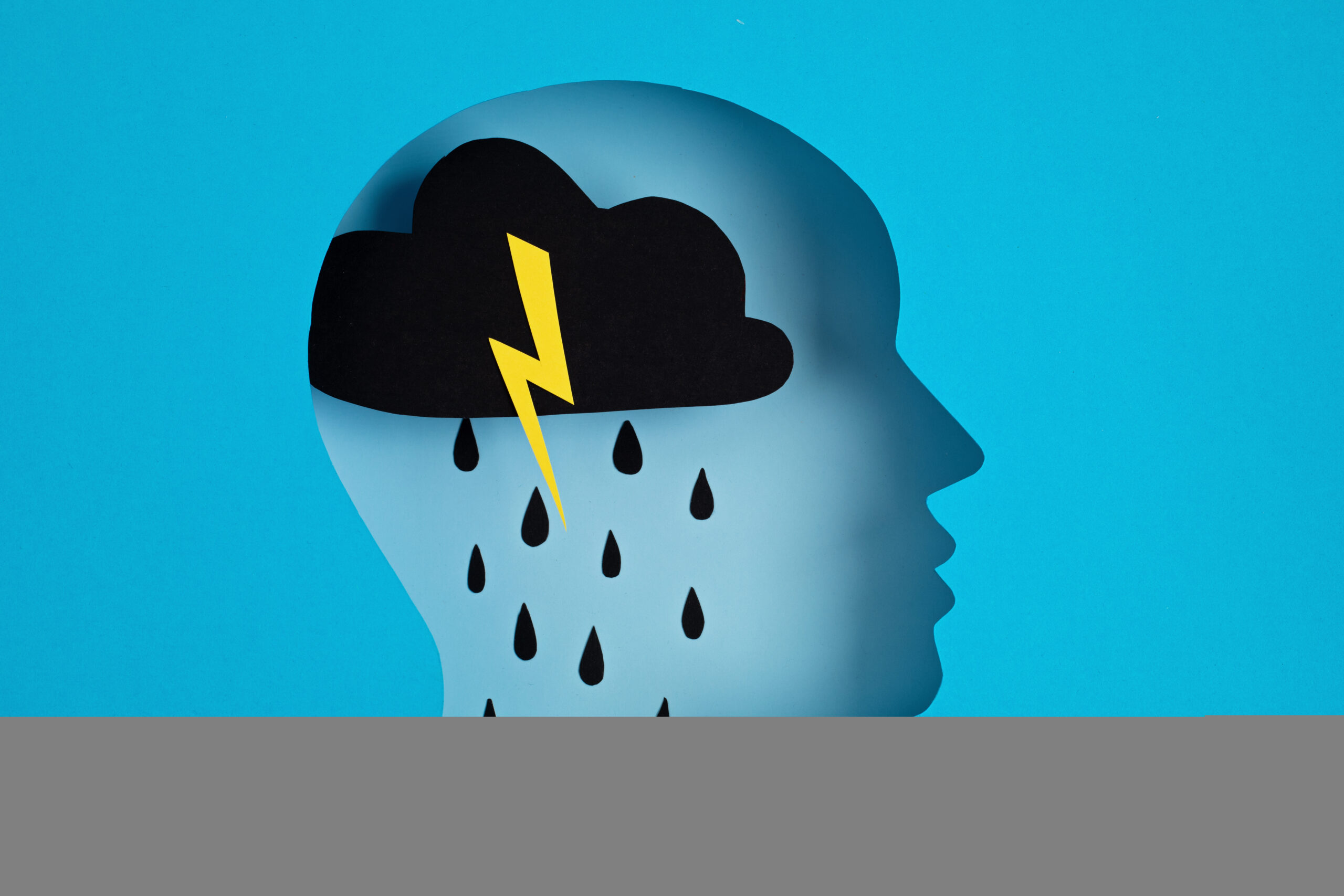Where we build a world of peaceful minds together
OUR SERVICES

ANXIETY
Anxiety is a normal reaction to stress and can be beneficial in some situations. It can alert us to dangers and help us prepare and pay attention. Anxiety disorders differ from normal feelings of nervousness or anxiousness and involve excessive fear or anxiety.
Anxiety disorders are the most common of mental disorders and affect nearly 30% of adults at some point in their lives. But anxiety disorders are treatable and a number of effective treatments are available. Treatment helps most people lead normal productive lives.
MINDFULNESS
Mindfulness is the basic human ability to be fully present, aware of where we are and what we’re doing, and not overly reactive or overwhelmed by what’s going on around us.
While mindfulness is something we all naturally possess, it’s more readily available to us when we practice on a daily basis.
Whenever you bring awareness to what you’re directly experiencing via your senses, or to your state of mind via your thoughts and emotions, you’re being mindful. And there’s growing research showing that when you train your brain to be mindful, you’re actually remodeling the physical structure of your brain.


DEPRESSION
Depression is a mood disorder that involves a persistent feeling of sadness and loss of interest. It is different from the mood fluctuations that people regularly experience as a part of life.
Major life events, such as bereavement or the loss of a job, can lead to depression. However, doctors only consider feelings of grief to be part of depression if they persist.
Depression is an ongoing problem, not a passing one. It consists of episodes during which the symptoms last for at least 2 weeks. Depression can last for several weeks, months, or years.
RELATIONSHIP ISSUES
Many people struggle with relationship issues; some tracing back to childhood. Relationship challenges can include: poor communication, lack of goal alignment, poor behavioral patterns, jealousy, obsessions. Therapy helps to identify underlining issues, relationship styles and traits, as well as to refocus the vision to align the couple with new goals and desires.


TRAUMA
Trauma is a person’s emotional response to a distressing experience. Few people can go through life without encountering some kind of trauma. Unlike ordinary hardships, traumatic events tend to be sudden and unpredictable, involve a serious threat to life—like bodily injury or death—and feel beyond a person’s control.
Most important, events are traumatic to the degree that they undermine a person’s sense of safety in the world and create a sense that catastrophe could strike at any time. Parental loss in childhood, auto accidents, physical violence, sexual assault, military combat experiences, the unexpected loss of a loved one are common traumatic events.
SELF ESTEEM
Confidence in one’s value as a human being is a precious psychological resource and generally a highly positive factor in life; it is correlated with achievement, good relationships, and satisfaction. Possessing little self-regard can lead people to become depressed, to fall short of their potential, or to tolerate abusive relationships and situations.
Too much self-love, on the other hand, results in an off-putting sense of entitlement and an inability to learn from failures. It can also be a sign of clinical narcissism, in which individuals may behave in a self-centered, arrogant, and manipulative manner. Perhaps no other self-help topic has spawned so much advice and so many (often conflicting) theories.


ADJUSTMENT DISORDER
An adjustment disorder is an emotional or behavioral reaction to a stressful event or change in a person’s life. The reaction is considered an unhealthy or excessive response to the event or change within three months of it happening. Stressful events or changes in the life of your child or adolescent may be a family move, the parents’ divorce or separation, the loss of a pet, or the birth of a sibling. A sudden illness or restriction to your child’s life due to chronic illness may also result in an adjustment response.
While adults can experience adjustment disorders, it is predominantly diagnosed in children and adolescents.
SOCIAL ANXIETY
Social anxiety disorder, sometimes referred to as social phobia, is a type of anxiety disorder that causes extreme fear in social settings. People with this disorder have trouble talking to people, meeting new people, and attending social gatherings. They fear being judged or scrutinized by others. They may understand that their fears are irrational or unreasonable, but feel powerless to overcome them.
Symptoms of social anxiety may not occur in all situations. You can have limited or selective anxiety. For example, symptoms may only occur when you’re eating in front of people or talking to strangers. Symptoms can occur in all social settings if you have an extreme case.


ANGER MANAGEMENT
Anger management involves a range of skills that can help with recognizing the signs of anger and handling triggers in a positive way. It requires a person to identify anger at an early stage and to express their needs while remaining calm and in control. Managing anger does not involve holding it in or avoiding associated feelings.
Coping with anger is an acquired skill — almost anyone can learn to control the feelings with time, patience, and dedication.
When anger is negatively affecting a relationship, and especially if it is leading to violent or otherwise dangerous behavior, a person may benefit from consulting a mental health professional or attending an anger management class.
STRESS
Stress is our body’s response to pressure. Many different situations or life events can cause stress. It is often triggered when we experience something new, unexpected or that threatens our sense of self, or when we feel we have little control over a situation.
We all deal with stress differently. Our ability to cope can depend on our genetics, early life events, personality and social and economic circumstances.
When we encounter stress, our body produces stress hormones that trigger a fight or flight response and activate our immune system. This helps us respond quickly to dangerous situations.


BURNOUT
SPIRITUALITY AND RELIGION
Religion and spirituality are similar in foundation, but they are very different in practice.
Religion is an organized, community-based system of beliefs, while spirituality resides within the individual and what they personally believe. “The idea of religion and spirituality is like a rectangle versus a square. Within religion there is spirituality, but if you have spirituality, it doesn’t necessarily mean you have religion,” says someone who practices both religion and spirituality.


COPING SKILLS
MEDITATION
Meditation can wipe away the day’s stress, bringing with it inner peace. See how you can easily learn to practice meditation whenever you need it most.
If stress has you anxious, tense and worried, consider trying meditation. Spending even a few minutes in meditation can help restore your calm and inner peace.
Anyone can practice meditation. It’s simple and inexpensive. And it doesn’t require any special equipment.


COUPLES COUNSELING
Couples therapy can help you at any stage of your relationship, regardless of marital status, age, race, faith, or sexual orientation.
SOUND HEALING
A sound therapy treatment is both a passive and participatory experience. The passive aspect is that you become more relaxed by laying down and slowing your breath. By doing this, you prepare yourself to become the receiver of sound. It’s in this place of stillness that you participate by becoming more open and aware of each sound that comes in. Sound helps create the pathway to this place of stillness the same as a mantra helps you to arrive at the still point of meditation.
Some of the tools I use are voice, drumming, tuning forks and Himalayan singing bowls. It’s important to note that awareness plays a huge role in our own “healing”.

GROUP THERAPY
Group therapy is a form of psychotherapy that involves one or more therapists working with several people at the same time. This type of therapy is widely available at a variety of locations including private therapeutic practices, hospitals, mental health clinics, and community centers.
Group therapy is sometimes used alone, but it is also commonly integrated into a comprehensive treatment plan that also includes individual therapy.
EMOTIONALLY FOCUSED TAPPING
Humans are always looking for better ways to relieve stress. Medications may work, but they have side effects. Many people seek alternative solutions, such as EFT tapping. EFT stands for Emotional Freedom Techniques, and users say that this simple technique helps them feel better quickly.
EFT tapping has roots in the 1970s when several doctors began stimulating acupressure points to help their patients deal with stress, fear, and phobias. One of them, patented by Dr. Roger Callahan, is called Thought Field Therapy. Later Gary Craig simplified the process and made it available to the public under the EFT name.

Telehealth
Approach
Telehealth consists of therapy services offered through technological modalities, such as phone or video (internet). It provides access to effective treatment services with the convenience of remaining where the individual feels most comfortable (i.e. at home). Telehealth is beneficial for a range of people who may present with a diverse set of challenges or circumstances.
How does it work?
I use a HIPAA-compliant platform that allows your privacy to remain secured. We schedule 45-minute or 60-minute sessions as would be scheduled for in-person sessions. Telehealth is appropriate for most people; and in many cases. Our office will only be providing Telehealth services, indefinitely.
